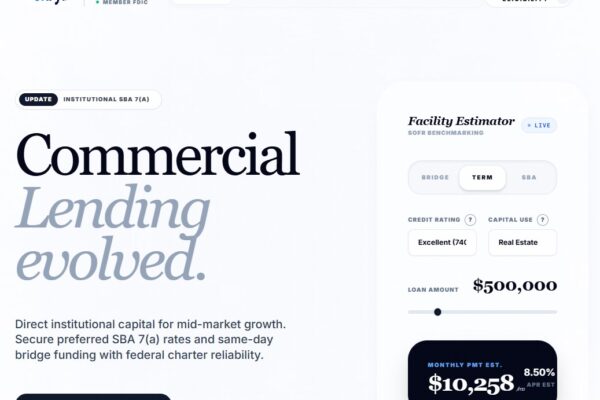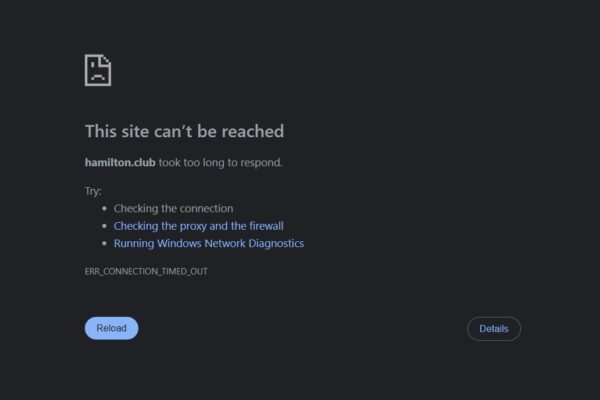Universalcapitalmarkets.com Scam -A Suspicious Broker
Universalcapitalmarkets.com presents like a slick online broker, but a growing pile of warning signs — regulator alerts, hidden ownership, withdrawal complaints, and classic “too good to be true” marketing — strongly suggests it is a high-risk operation and very likely a scam. Below I unpack the patterns, the user experiences, the structural evidence, and the reasons to treat this platform with extreme scepticism.
Opening: The Friendly Pitch — and the Quiet Alarm Bells
Imagine a polished website, glossy testimonials, a professional-looking trading dashboard and a charming “account manager” who calls to congratulate you on getting started. The interface shows steady gains. The chat replies are quick. Everything seems fine — until you try to withdraw.
That is the common story that threads through the Universal Capital Markets narrative. New users are welcomed with the usual promises (fast returns, expert tools, VIP accounts) and a friendly onboarding experience. But as deposits grow and withdrawal requests appear, the smooth surface frequently cracks, and the tale turns dark: delays, demands for additional fees, blocked accounts, or disappearing contact channels.
This pattern isn’t unique in online investing — it’s the pattern of many fraudulent broker schemes. The case of Universal Capital Markets is no exception: the accumulation of technical signals, regulatory warnings and consistent user complaints form a worrying mosaic.
What the Platform Claims (the Sales Pitch)
On its public pages, Universal Capital Markets markets itself as a full-service trading and investment platform. Typical claims include:
-
Access to forex, cryptocurrencies, indices, commodities and other CFD-like products.
-
Multiple account tiers (standard, gold, VIP) with promises that higher tiers unlock better returns or lower costs.
-
Professional account managers, trading signals and alleged “proprietary” trading tools.
-
Testimonials and visuals meant to convey legitimacy and success.
Taken in isolation, those claims look like any other modern broker. The problem is not the pitch; it’s whether those promises are backed by verifiable oversight, transparency and fair customer treatment — and in Universal Capital Markets’ case, those supports are missing or contradictory.
Hard Red Flags (structural & regulatory)
When assessing any broker, there are a set of critical checks: regulation, corporate transparency, domain history, and verified customer experiences. Universal Capital Markets fails enough of those checks to justify alarm.
-
Regulatory alerts and listings: Multiple securities regulators and investor-protection bodies in different jurisdictions have placed Universal Capital Markets on caution lists. These are official notices telling consumers the firm is not registered to provide investment services where it solicits clients. Regulatory warnings are not casual criticisms — they are formal signals that the entity may be operating illegally or outside required oversight.
-
Hidden ownership and masked WHOIS: The company’s domain and registration details are obfuscated with privacy services. Legitimate financial firms typically disclose corporate offices, directors and regulated entity numbers; the absence of traceable ownership suggests a deliberate avoidance of accountability.
-
Very young or inconsistent domain history: The online footprint is recent and does not match grand claims of decades-long operation sometimes promoted on the site. Mismatches between claimed longevity and actual digital history are a common way to manufacture credibility.
-
Low trust scores from independent site monitors: Several website-reputation tools flag the domain as low trust, citing factors such as hidden ownership, recent registration, and sparse external references. Those automated risk assessments are not decisive by themselves, but combined with other signals they matter.
-
Multiple jurisdictions showing the same pattern: The fact that regulators in more than one jurisdiction have independently flagged the name demonstrates that the concern is not an isolated complaint but a recurring pattern observed across borders.
The User Experience: A Recurring Complaint Pattern
Beyond technical checks, the lived experience of people who have interacted with Universal Capital Markets reveals the operational behavior that matters most.
-
Easy deposits, difficult withdrawals. The most consistent complaint is that deposits are accepted promptly, while withdrawal requests are delayed, rejected, or returned with newly invented obstacles. Users report being asked to pay “processing fees,” “taxes,” or to upgrade accounts before any money is released.
-
Account managers who push for more money. After a user’s initial deposit, account managers often urge larger deposits to unlock “VIP” gains or better leverage. This upsell pressure is high-touch and persistent.
-
Profits shown on dashboards that can’t be cashed out. Many victims report seeing attractive balances and simulated gains on their dashboard — numbers that vanish or cannot be withdrawn when challenged.
-
Communication evaporates once money is requested back. In a familiar move, once users push for withdrawals the tone changes: longer response times, generic emails, or outright silence.
-
Fabricated or unverifiable testimonials. The social proof on the site tends to be shallow and impossible to verify independently. Contrast that with detailed negative reviews posted on independent forums and discussion boards.
Put simply: the behaviour pattern reported by many customers tracks the classic “bait-and-hold” playbook — show returns to build trust, then use administrative friction to keep funds.
Tactical Tricks Used (how the trap operates)
To understand why victims get trapped, it helps to look at the standard playbook used by fraudulent brokers — and which elements appear in Universal Capital Markets’ operating style:
-
“Small wins” early on. Allowing a tiny initial withdrawal or showing small gains builds confidence. Once trust is established, the operator upsells larger opportunities.
-
Bonus/upgrade conditions that lock funds. Offering a “bonus” that carries opaque terms requiring multiples of trading volume before withdrawal — a classic way to make money impossible to retrieve without further deposits.
-
Invented fees and compliance hurdles at the point of withdrawal (verification fees, transfer fees, or country-specific taxes). These are typically demanded right when a client requests money out.
-
Domain hopping and rebranding. When pressure rises, operators will change domain names, adjust branding, or morph into a similar-sounding entity to evade complaints and continue harvesting deposits.
-
Pressure via social proof and urgency. Limited offers and “exclusive spots” for VIP accounts create FOMO and push users to make rapid decisions they later regret.
When these tactics are combined with the technical red flags described earlier, the operational model points toward intentional design to extract and retain investor funds.
Why Even Savvy People Get Caught
This scheme works because it exploits common psychological levers: scarcity, authority, social proof, and the perception of technical expertise. A professionally designed site plus a friendly human on the phone is persuasive. Early small withdrawals or simulated gains create cognitive dissonance: people start rationalizing and then double down, hoping the next deposit will unlock the promise.
Add to that the reality that many victims feel ashamed to report being scammed — which protects the operation — and it becomes clear how these platforms scale.
The Bottom Line (Verdict)
Based on the combination of formal regulatory cautions, transparent structural weaknesses, consistent user reports of withdrawal obstruction, and operational tactics that match known scam playbooks, Universal Capital Markets should be treated as extremely high risk and very likely fraudulent.
This is not merely a single gripe or an isolated technical problem. The evidence forms a recurring, cross-jurisdictional pattern: the look and feel of a broker designed more to harvest deposits than to provide genuine, regulated financial services.
How This Fits a Larger Pattern
Universal Capital Markets is best understood as one node in a broad ecosystem of unregulated or deceptive online brokers. These operations often feed off the same vulnerabilities: gaps in cross-border enforcement, easy access to payment processors willing to transact, and the anonymity of the internet. That makes vigilance essential: many of the companies that behave like Universal Capital Markets show up under different names, domains and slight variations of branding over time.
Final Words
If you encounter an investment platform that shows the mix of polished marketing, hidden ownership, regulatory caution flags, and withdrawal friction described above, treat it with extreme scepticism. The combination of these signals in Universal Capital Markets is sufficient to conclude that the platform lacks the hallmarks of a legitimate, properly regulated broker and instead bears the characteristics of an operation built to extract money from users.
Report Universalcapitalmarkets.com Scam and Recover Your Funds
If you have lost money to Universalcapitalmarkets.com Scam, it’s important to take action immediately. Report the scam to Jayen-consulting.com, a trusted platform that assists victims in recovering their stolen funds. The sooner you act, the better your chances of reclaiming your money and holding these fraudsters accountable.
Scam brokers like Universalcapitalmarkets.com continue to target unsuspecting investors. Stay informed, avoid unregulated platforms, and report scams to protect yourself and others from financial fraud.
Stay smart. Stay safe.






